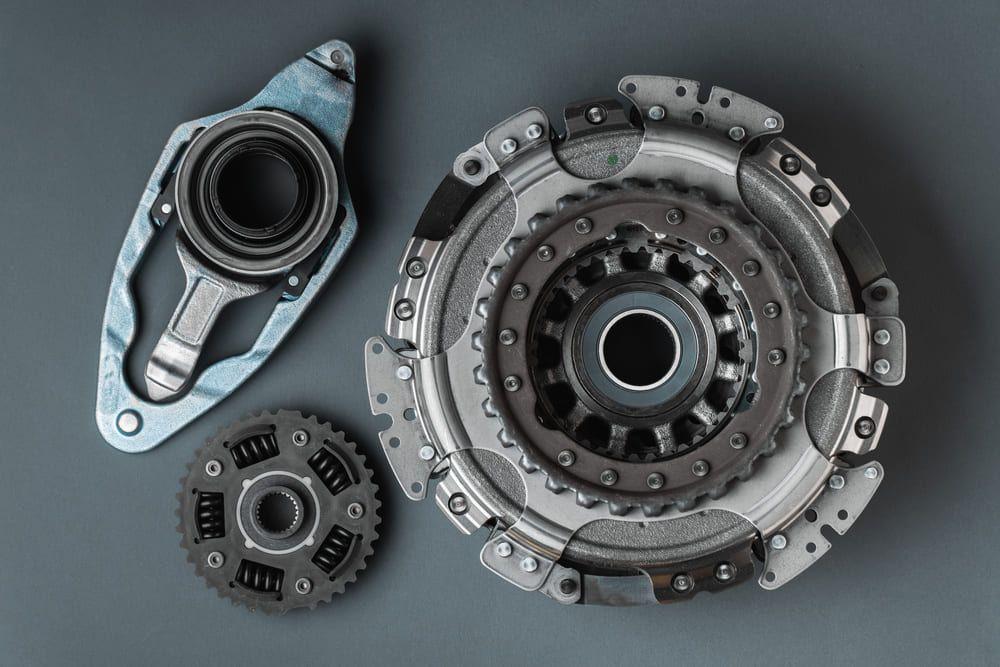
Anti-Lock Braking System Repair Cost in the UK? (2025)
Anti-lock braking is one of the most important innovations in automotive design in the last few decades, preventing hundreds of thousands of collisions and accidents.
The principle in which the system works is relatively simple, but the realities of implementing it are less so, with complex mechanical and electric devices being critical to it working properly. In this article, we’ll look into the potential costs of repairing these components.
How much does it cost to repair the ABS system?
What is ABS?
What causes the ABS system to fail?
How does ABS work?
Can I drive with faulty ABS?
How much does it cost to repair the ABS system?
ABS (Anti-Lock Braking System) repairs can cost between £60 - £2,300, depending on the nature and extent of the fault.
An ABS pump or module replacement can cost anything from £600 - £2,300, depending if it needs dealer-level software re-coding.
A wheel speed sensor, however, can be as little as £50.
Have your ABS repaired with Bumper. If you’re expecting a big repair bill, Bumper's interest-free car repair finance can help you split the cost.

What is ABS?
An anti-lock braking system or ABS as it is shortened to, is a safety feature that prevents the wheels from locking up and skidding in the event of hard braking, or when driving over loose or slippery surfaces.
It has been mandatory on all cars sold in the EU since 2004, and likely helps prevent thousands of accidents every year, by drastically reducing braking distances. It also helps significantly with being able to brake whilst steering.
How does ABS work?
A dedicated module monitors the speed of each wheel using sensors. This data is then used to detect when a wheel has started to skid. The ABS pump then pulses braking power to that wheel, preventing it from skidding.
In almost all modern cars, the module that controls and monitors the system, and the pump/modulator are built into one unit. This is known by a few names, including: the ABS pump, ABS module, ABS unit, etc.
The ABS system pulses the braking force up to 15 times per second when controlling a skid event. This is the cause of the vibrating/shaking feeling you may get when emergency braking.
What causes the ABS system to fail?
With such a complex system, there are a number of reasons it can develop a fault.
A faulty wheel speed sensor is usually the best-case scenario, as they are relatively simple to change and not overly expensive. Faults with wheel speed sensors are usually accompanied by an ESP or ESC light on the dash too, as these systems also utilise them.
Old or dirty brake fluid can also cause problems with ABS systems, as the pump has many tiny orifices that can become blocked. This is another reason to keep on top of brake fluid servicing.
ABS pump faults through age or deterioration are also not uncommon; they have many complex components inside that can simply become ineffective with age and use.

Can I drive with faulty ABS?
No, it is unsafe to drive with an ABS fault. In the event of an emergency stop or wet road conditions, your car's stopping distance will be drastically increased.
The fact that older cars didn’t have ABS is immaterial, as modern braking systems have much more power and will lock up the wheels much more easily, vastly increasing the risk of an accident.
Repair your ABS module with Bumper
If you’re worried about paying for costly car repairs, using Bumper's car repair finance can help your cash flow all at 0% interest. Apply online and choose from 1000s of partners across the UK.
Author - Joseph Law
Joseph has been writing about cars for over eight years and writing for Bumper for over three, blending his passion for automobiles with a talent for storytelling. Joseph has written about engineering and cars for Autozilla, Komaspec, and several engineering manufacturers. When he's not writing or tinkering with one of his cars, Joseph dreams of owning an Alfa Romeo 33 Stradale.
Split your car repair cost over monthly repayments interest-free.
Split the cost of your next repair
Other related articles from our blog

Advice
4 min read
How much does a sump oil leak repair cost?
A sump oil leak repair cost can sit anywhere from £50 to over £700. See the average prices per repair and see the next steps online now with Bumper.

Advice
4 min read
How much does a Tesla scratch repair cost?
Tesla scratch repair costs £80 to £1,200, depending on how deep the scratches are and which part of the vehicle is damaged. Find out more online now.

Advice
4 min read
How Much Does a DSG Gearbox Repair Cost?
Due to their complexity, DSG gearbox repairs typically cost between £200 and £2,500. Find out more about DSG gearbox repairs and replacements here.